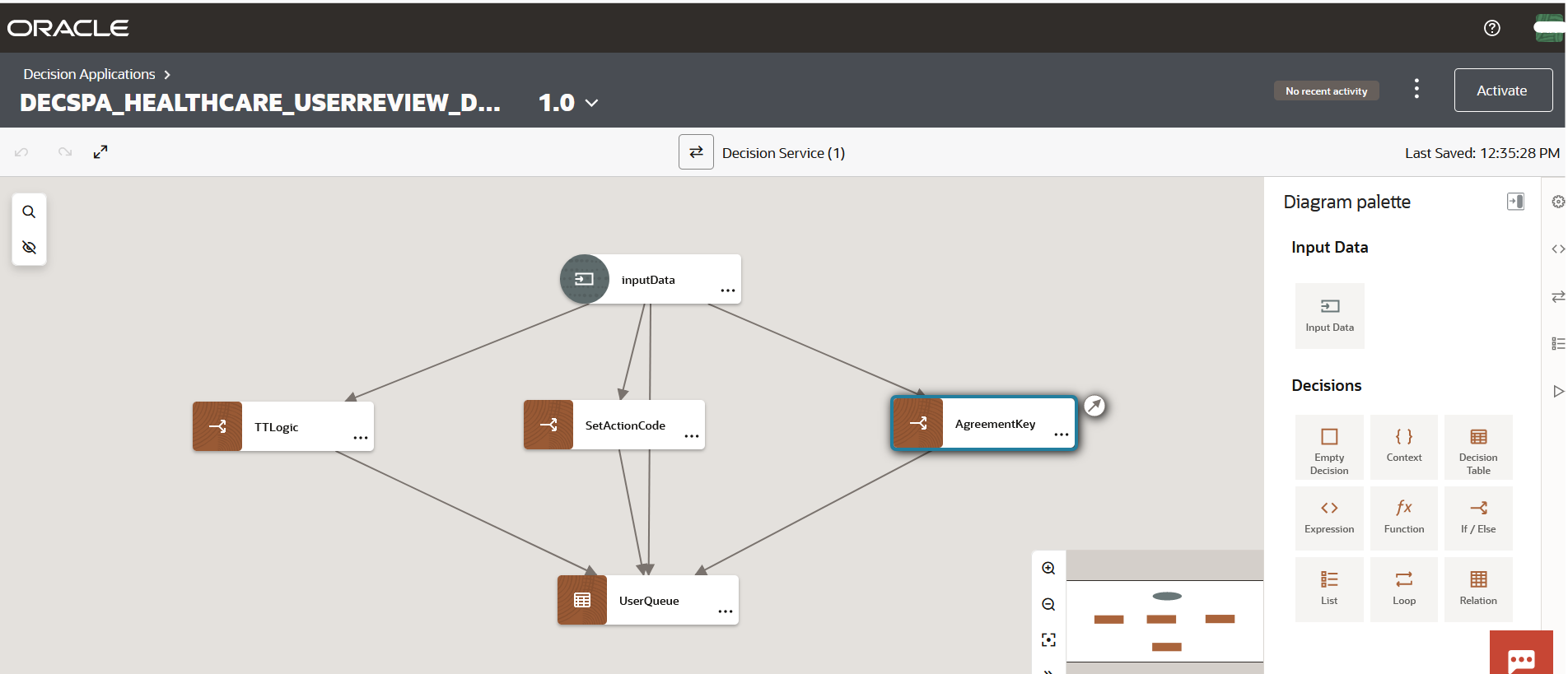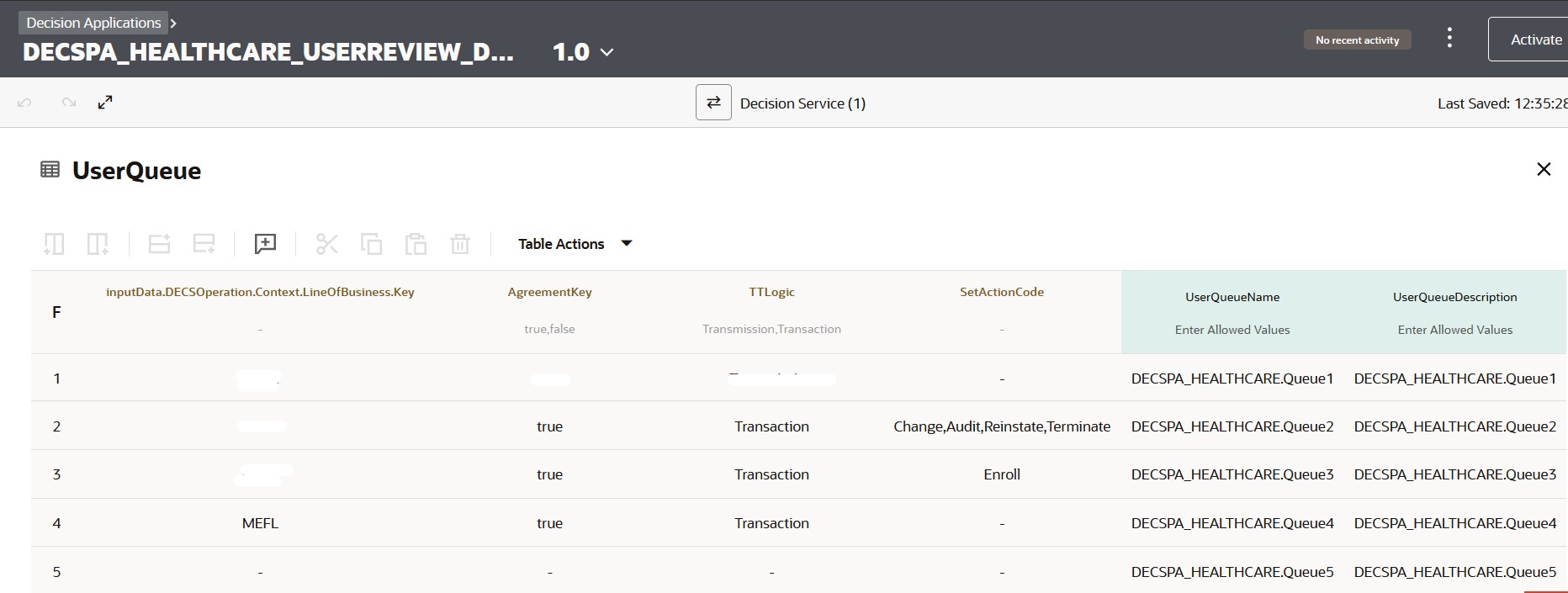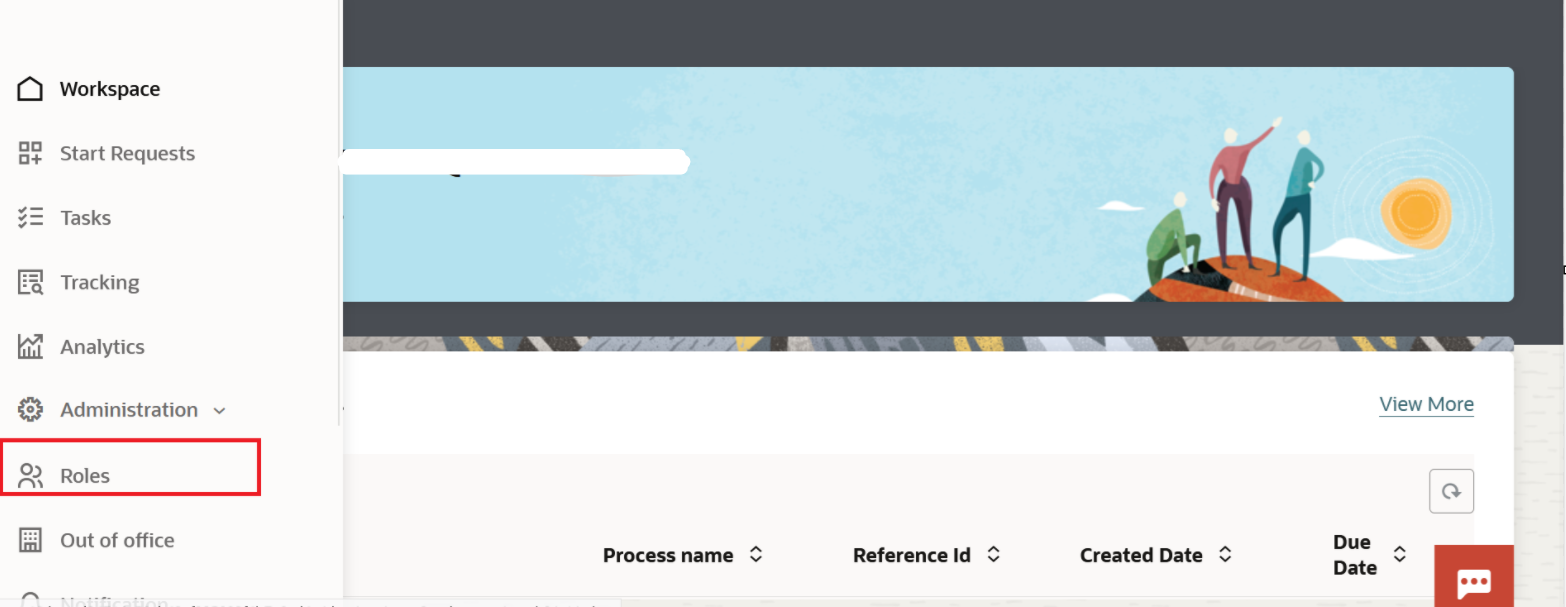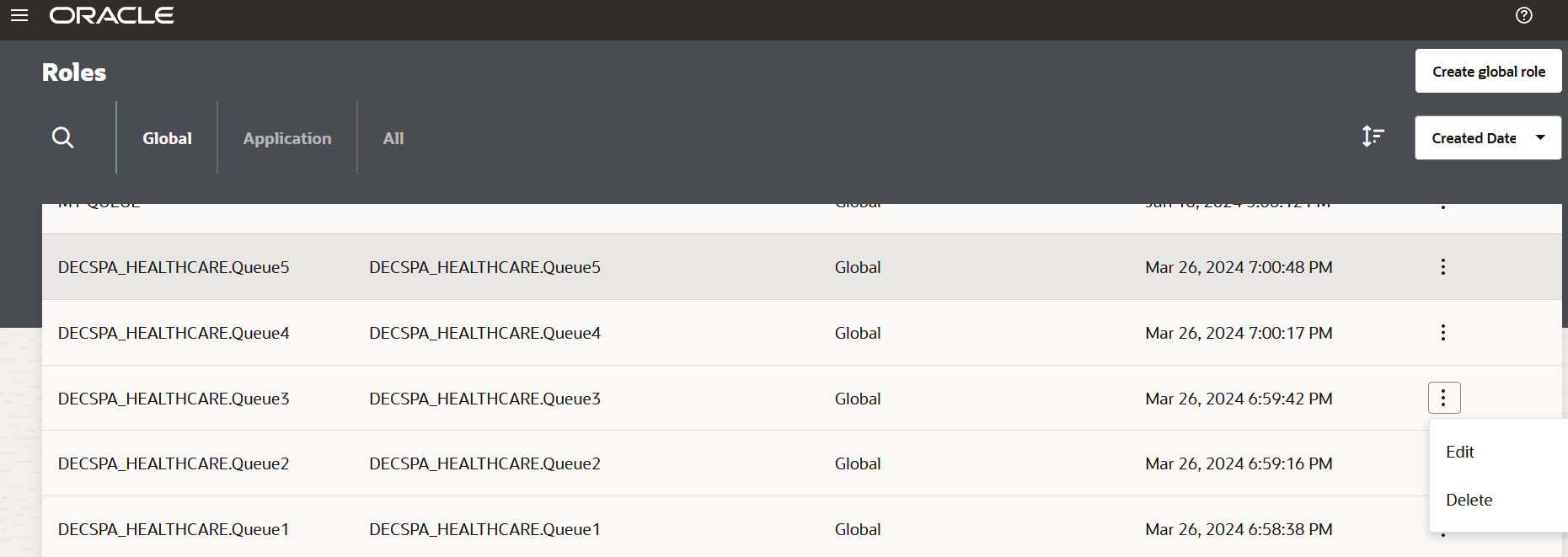Work Queues in OPA
Roles and Queues
Roles can be configured to grant users and groups specific task and data access permissions. Process application roles determine what data a user or group can access and what actions they can perform in user tasks. See About Process Application Roles for more information.
User tasks are routed to designated user groups by roles in the workspace, limiting access to those sets of users only.
For example:
-
User tasks created for the enrollment transaction with an action code of enroll need to be routed to the enrollment user group.
-
Claims related user tasks need to be routed to claims user group and so on.
This can be achieved by adding the required conditional logic and global roles in Decision Application and Model Decisions.
You can view the conditions added in decision services in the following image:


In the following image, the condition DECSPA_HEALTHCARE.Queue3 (global role) contains user tasks for type as transaction with action code as enroll.

How to Create Global Roles in Workspace and Add User Groups?
See Add a Global Role in Workspace for more information on how to add a global role.
DECS Configured with Global Roles
The following global roles in the image are an out-of-the-box implementation in OPA, also known as queues.



| It is recommended that user groups be added to OPA rather than individual users Users and groups for your process automation instance are created in Oracle Identity Cloud Service (IDCS) or Oracle Cloud Infrastructure Identity and Access Management (IAM). |
Who has the Privilege to Add User Groups in OPA?
Users with the DECS operations manager role (application role—operations_manager) can access OPA to add or remove user groups in the workspace. See Team Tasks for more information.